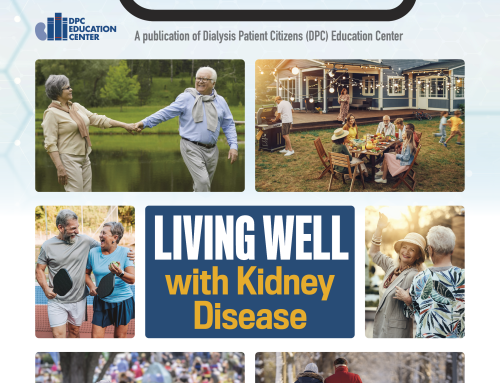By Kathi Niccum, EdD, Education Director
The 2020 DPC Member Survey included a section for caregivers/care partners. From the 146 respondents, 84% were women and the average age was 55.6 years. The caregivers did much of the grocery or other shopping, the housework, meal preparation, managing finances and helped with transportation and other outside services. But besides playing a key role in managing the household, they also were involved in nursing tasks, helped monitor the severity of their care recipient’s condition, helped communicate with health care professionals and helped their care recipient advocate for themselves regarding health care providers, community services, and government agencies.
Caregiving activities may happen gradually or suddenly. Sixty-four percent (64%) of the caregivers in the survey said they did not have a choice in taking on the responsibility of caregiving. For 20% of the respondents, the emotional stress of caregiving was very much a strain. Many of the caregivers held jobs and 74% had to take time off work, went in late or left early to provide care.
Overall, most caregivers said that their caregiving responsibilities had no effect on their own overall health. However, 27% did say it had a negative impact on their health. One of the most frequent challenges for caregivers was being tired and exhausted. The changing role was also a challenge mentioned over 50% of the time. The care recipient’s behavior was also a challenge, especially when the person was too tired to do much or was depressed and moody.
When caregivers were asked what would be most helpful to them as a care partner, 48% said it would help a lot to know ways to improve the quality of life of the person with kidney disease. This was followed by knowing ways to improve their own quality of life and knowing about caregiver resources with kidney disease.
The DPC Education Center strives to meet the needs of its members. We now have a monthly Telephone Support Group meetings that are open to patients and caregivers on the second Tuesday of each month. Learn more on our web site at https://www.dpcedcenter.org/news-events/dpc-support-group/. In addition, there is a section on quality of life at https://www.dpcedcenter.org/quality-of-life/ and all the monthly patient education webinars, which are recorded, are open to caregivers. The November 2020 webinar specifically was on “Looking Out for the Caregiver.” That recording and additional caregiver resources are available at https://www.dpcedcenter.org/education-webinar/looking-out-for-the-caregiver/. You may also be interested in our online programs that provide information and a variety of resources, as well as the opportunity to interact with others at https://www.dpcedcenter.org/resources/online-courses/.




